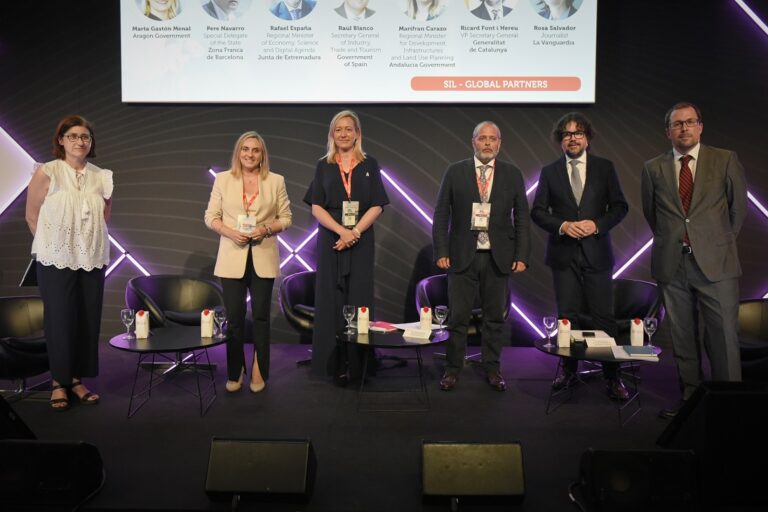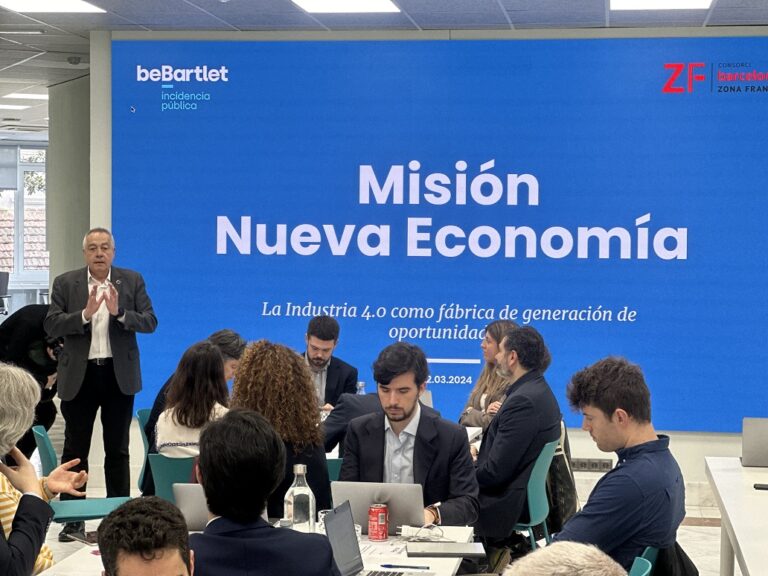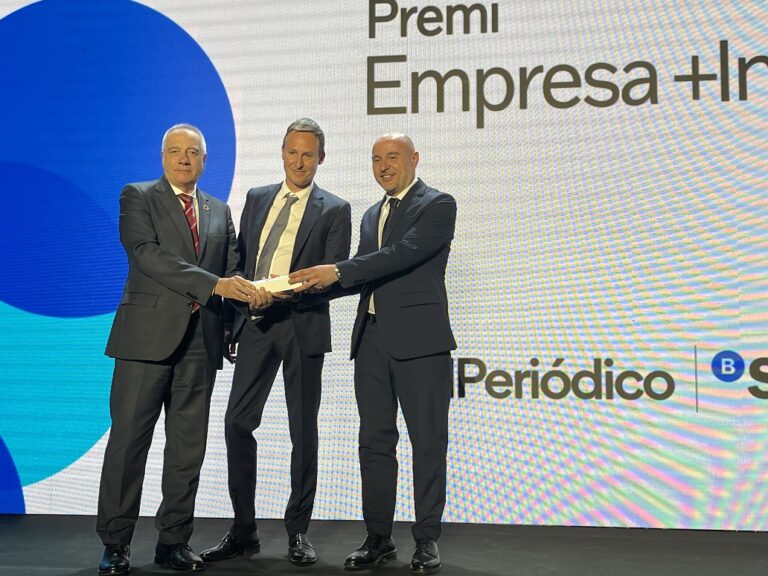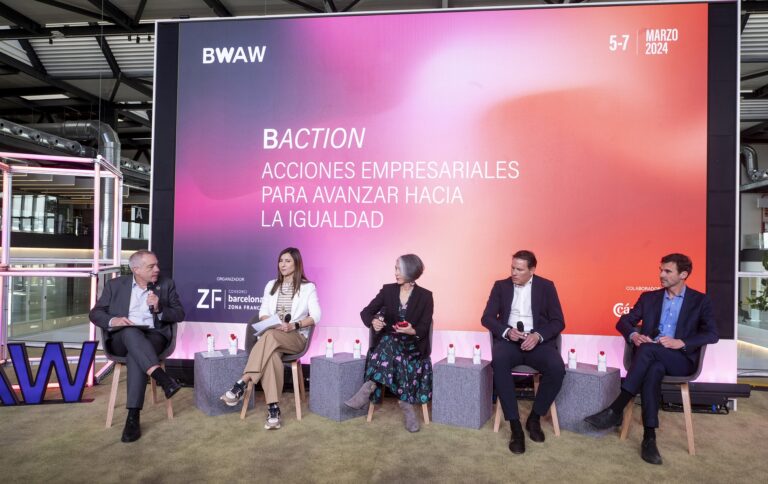Next Generation funds, key to a sustainable transition in the logistics sector

1 de June de 2022
- The second day of SIL 2022, organized by the Consorci de la Zona Franca de Barcelona (CZFB), has brought together four regional councilors to discuss the impact and use of European Next Generation funds in logistics.
- Catalonia, Aragon, Extremadura and Andalusia, together with the Secretary General of Industry, Trade and Tourism of the Government of Spain, Raül Blanco, have highlighted how the European Next Generation funds can help logistics to consolidate as a driver of change.
Barcelona, June 1, 2022 – The 22nd edition of the International Logistics Exhibition of Barcelona (SIL), one of the world’s largest fairs of Logistics, Transport, Intralogistics and Supply Chain, and the reference in Spain, the Mediterranean and Latin America, organized by the Consorci de la Zona Franca de Barcelona (CZFB), hosted this afternoon in the Global Partner stage the debate The opportunities of the communities with the Next Generation funds, where four regional councilors participated to discuss the impact and use of these European resources in logistics.
The meeting has been attended by Raül Blanco, General Secretary of Industry, Trade and Tourism of the Government of Spain; Rafael España, Minister of Economy, Science and Digital Agenda of the Regional Government of Extremadura; Marta Gastón, Minister of Economy and Employment of the Government of Aragon; Marifran Carazo, Minister of Development, Infrastructure and Planning of the Regional Government of Andalusia; Ricard Font, Secretary General of the Vice-Presidency for Digital Policies and Territory of the Regional Government of Catalonia; and Pere Navarro, special delegate of the State in the CZFB, who emphasized how the European Next Generation funds can help logistics to go digital and become more sustainable, among other issues. The session was moderated by Rosa Salvador, journalist of La Vanguardia.
In this sense, Pere Navarro has pointed out that “Spain is plural and we wanted to make this roundtable so that different autonomous regions could explain to us what their project is to take advantage of the Next Generation funds with the aim of boosting their transition to a new, more digital and sustainable economy”. Navarro also pointed out that “it is being the SIL of reunion, with more professionals and attendees than ever, with a great desire to create opportunities, seek synergies between companies and also public-private collaboration. Although the data will be known tomorrow in more detail, we are breaking attendance records”.
For its part, Raül Blanco has highlighted “industry and logistics are becoming increasingly connected. We contribute to these sectors by promoting digitalization with initiatives such as the PERTE electric and connected vehicle, a sector in which we seek to have the entire value chain in Spain, just as we have in the case of combustion vehicles. We also have PERTE in the aeronautics, rail and marine sectors”.
On the other hand, Rafael España has emphasized that “Currently in Extremadura we have 4 million of logistic land and we are going to have high-speed rail infrastructure. We have facilitated a fundamental competitive element: linking industrial development with power plants that minimize the cost of production. In addition, companies wishing to develop projects that are considered strategic in terms of job creation will be able to benefit from training grants. All this has been accelerated by the pandemic and the Next Generation funds”.
During the session, Ricard Font has indicated that “In Catalonia, we finished practically all the logistics land in the metropolitan area in the middle of the last decade. Until then, the industry was on the side of logistics because of our exporting nature. During the pandemic the supply chain has found certain complications that have driven us much more towards 0 km consumption.” Font added that “we have to regulate how to deal with the rise of the last mile and generate large logistics platforms to place them close to the end consumer”.
Likewise, Marta Gastón pointed out that “We have the Aragón Plataforma Logística project to promote a strategic sector for us and attract other investments. Our presence at SIL 2019 helped us to promote our commitment to logistics and generate international business”.
Finally, Marifran Carazo has emphasized that “Andalusia has embarked on an important path in logistics that is driving very important government projects. In addition, we have seven ports of state interest and we work in a very coordinated way in their planning, knowing the importance they have on the GDP, exports and job creation in our autonomous region. In recent years we have managed to unlock many projects throughout the community, several with public-private partnerships, which in addition to being strategic are digital and sustainable.



